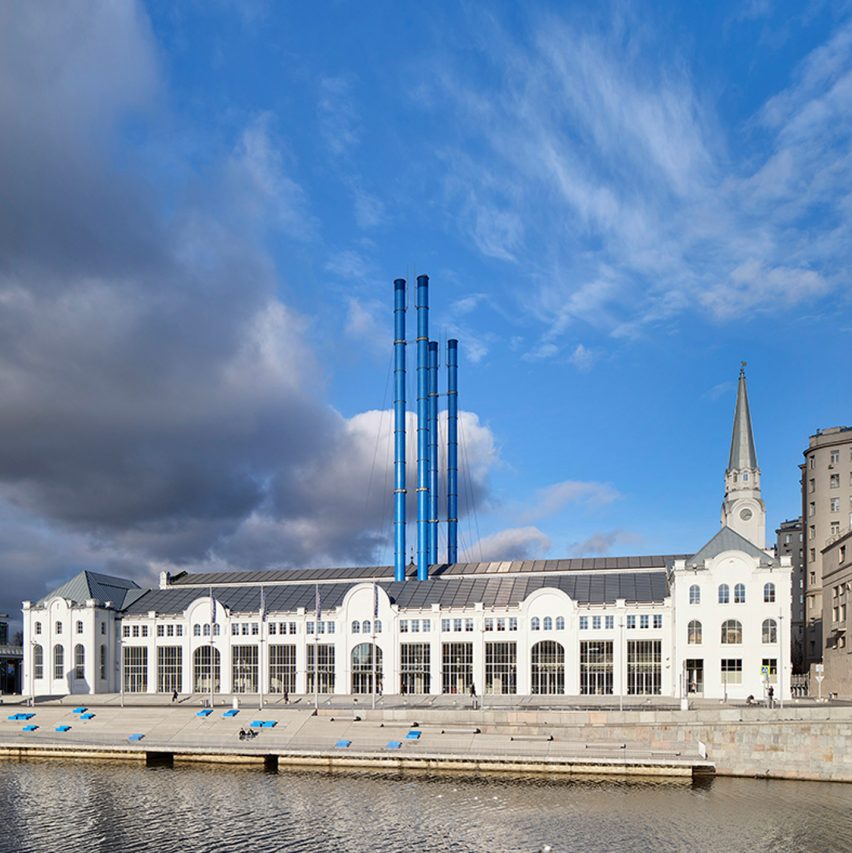
Italian architect Renzo Piano has transformed a former power station in Moscow into a contemporary arts centre for the V-A-C Foundation named GES-2 House of Culture
Renzo Piano Building Workshop's revamp of the power plant, which was designed in 1907 in the Russian Revival style by architect Vasili Bashkirov to power the city's tram system, is the studio's first project in Russia.
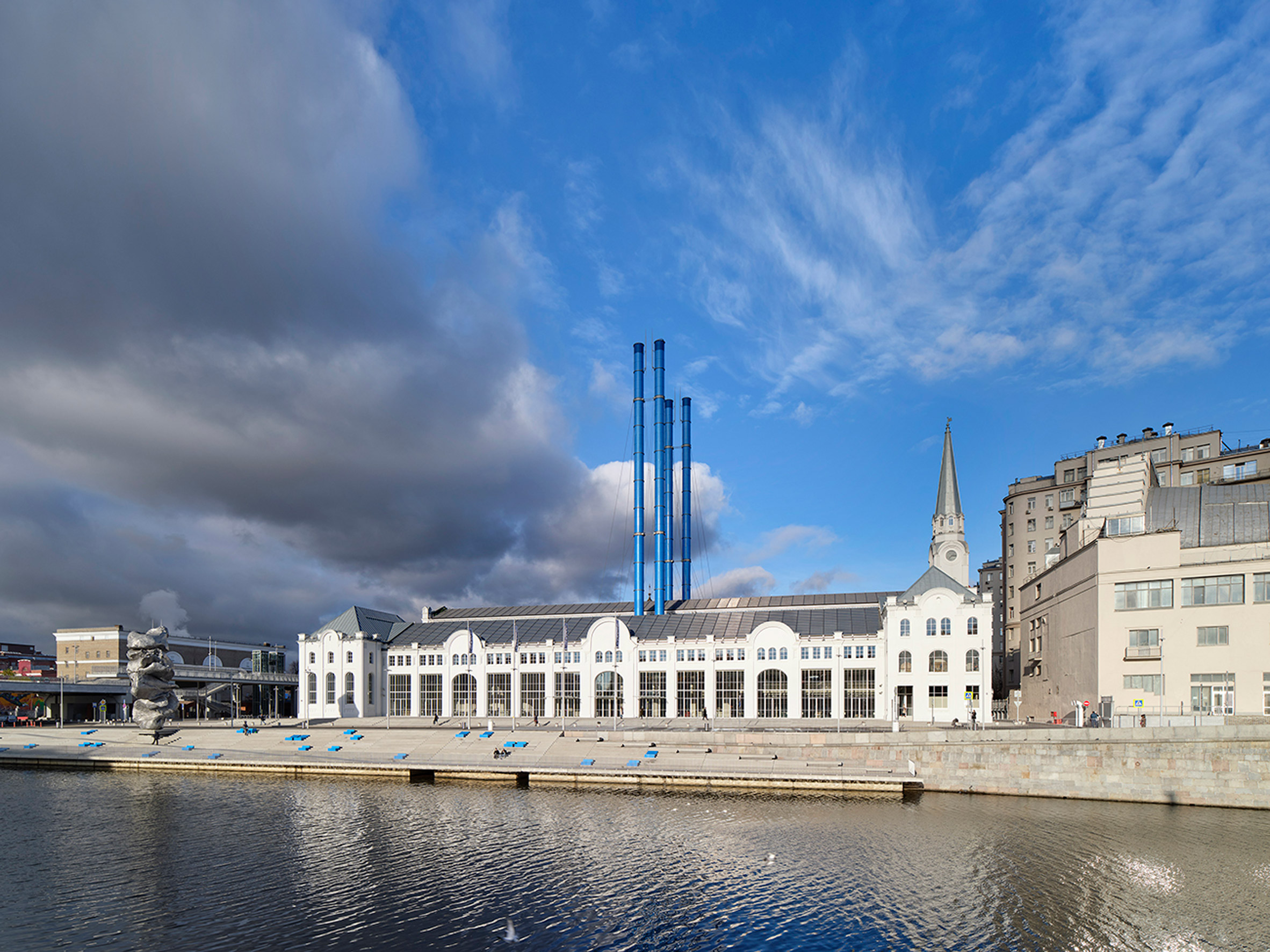
The studio stripped away more recent additions to the historic structure in the Red October arts district and aimed to restore as many of the plant's original features as possible.
One exception to this was replacing the original brick chimney stacks with four 70-metre-high, blue steel chimneys that give the building a presence in the city. They nod to the colourful pipework of the studio's previous high-tech buildings including the Centre Pompidou in Paris.
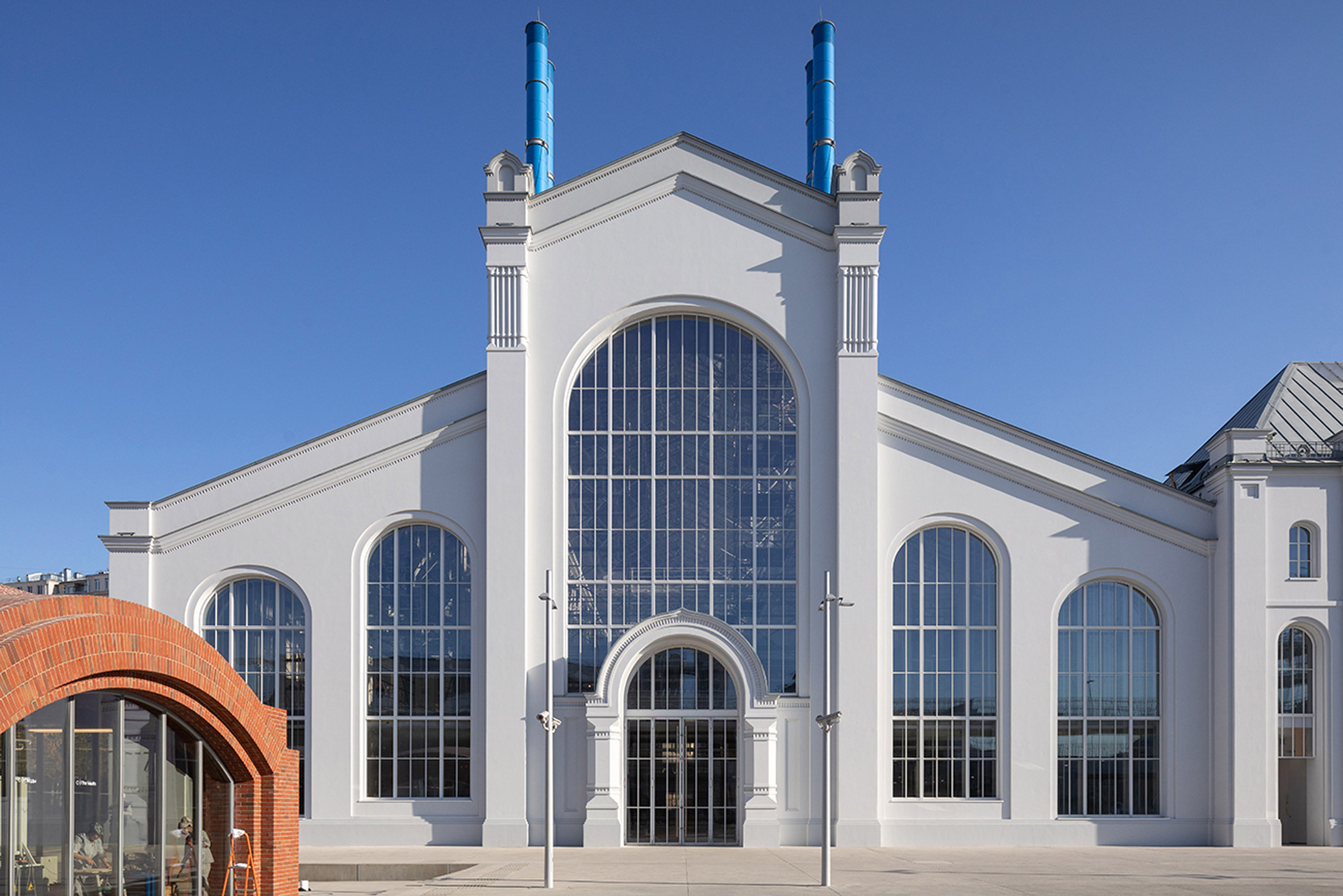
Informed by the community role of the Soviet Union's historic system of Houses of Culture, at the centre of GES-2 House of Culture is a 1,200-square-metre atrium that is cut through by an indoor pedestrian walkway that crosses the building.
Conceived as a "cathedral of light", this bright atrium is illuminated by the large windows and a new glass roof covered with solar panels.
"Contemporary art is more democratic than classical art, and complex, multifunctional cultural buildings have partly taken the place of temples," said Piano. "And, like temples, they are open to everyone."
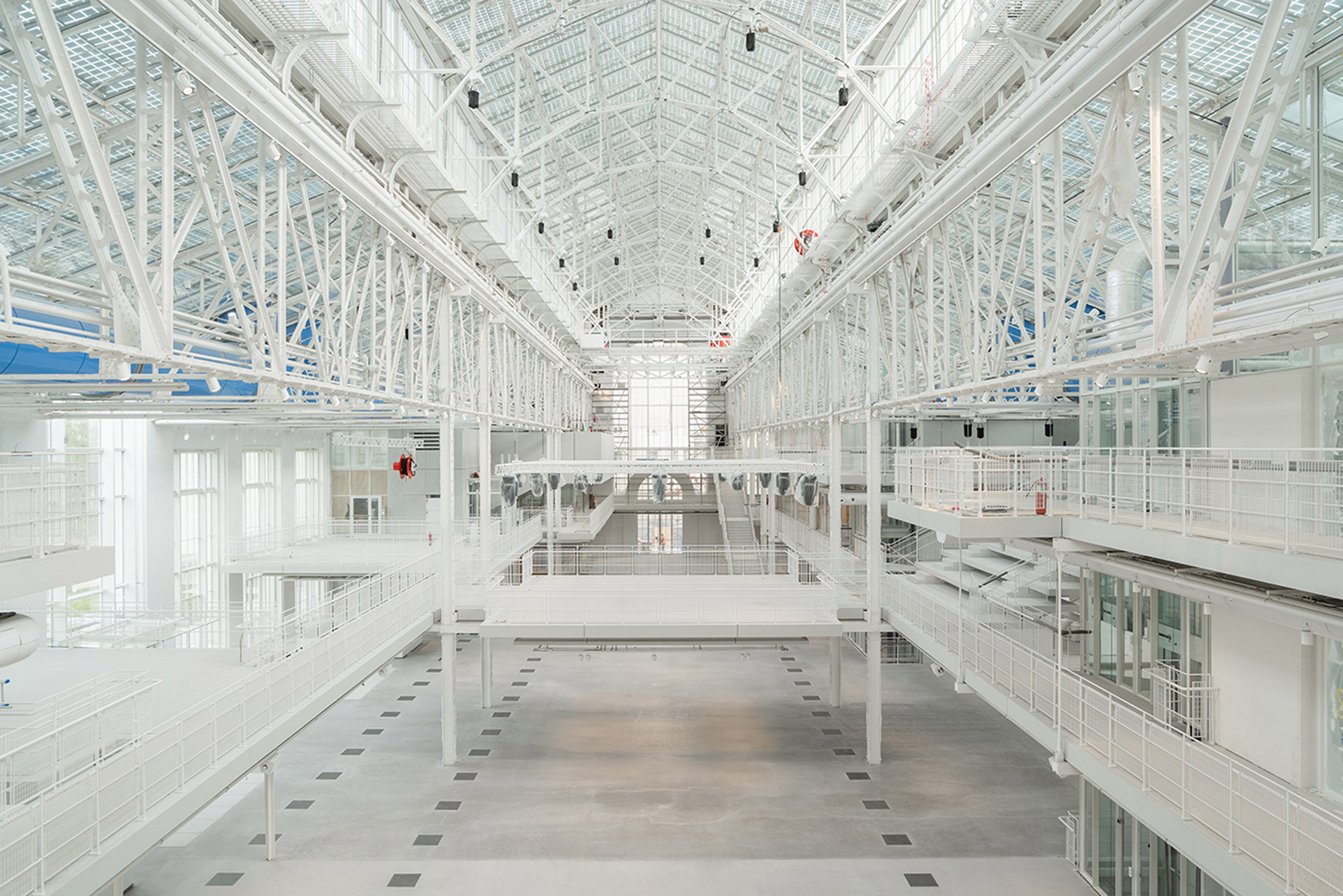
The white-painted steel structure of the plant defines the interiors, complemented by new additions such as staircases, walkways and pipework that reference this industrial aesthetic.
A "circulation web" of stairs, lifts, corridors and balconies was designed to create a legible, interconnected route through the building, which is divided into four areas described as civic, welcoming, exhibition and education.
"When entering and reaching the 'welcoming' area, it is sufficient for [visitors] to turn their eyes rich and left, up and down, to understand what is inside, where to go, and how to move," said the practice.
"Ideally, they don't need any plan to visit the entire centre."
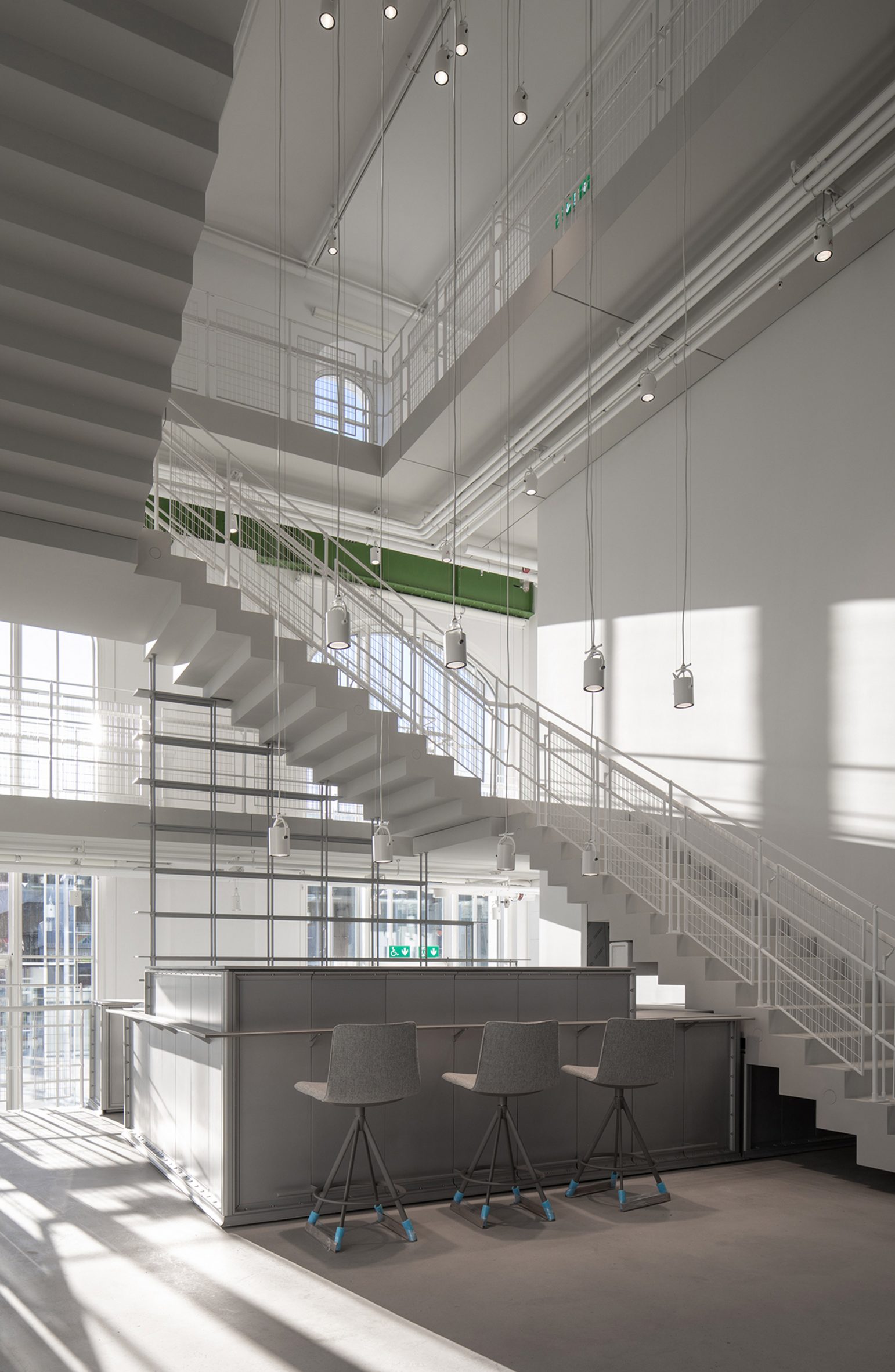
Alongside the atrium on the ground floor, the civic and welcoming spaces contain a library, media hub, restaurant, play area and workshop space.
On the floor above a wood-panelled performance space with auditorium-style seating is oriented to look out at an area alongside the museum that has been planted with over 600 birch trees.
Exhibition and gallery spaces sit both above and below the ground floor. A basement gallery space was designed to meet modern lighting and climate conditions, while smaller spaces above were designed for temporary multimedia installations.
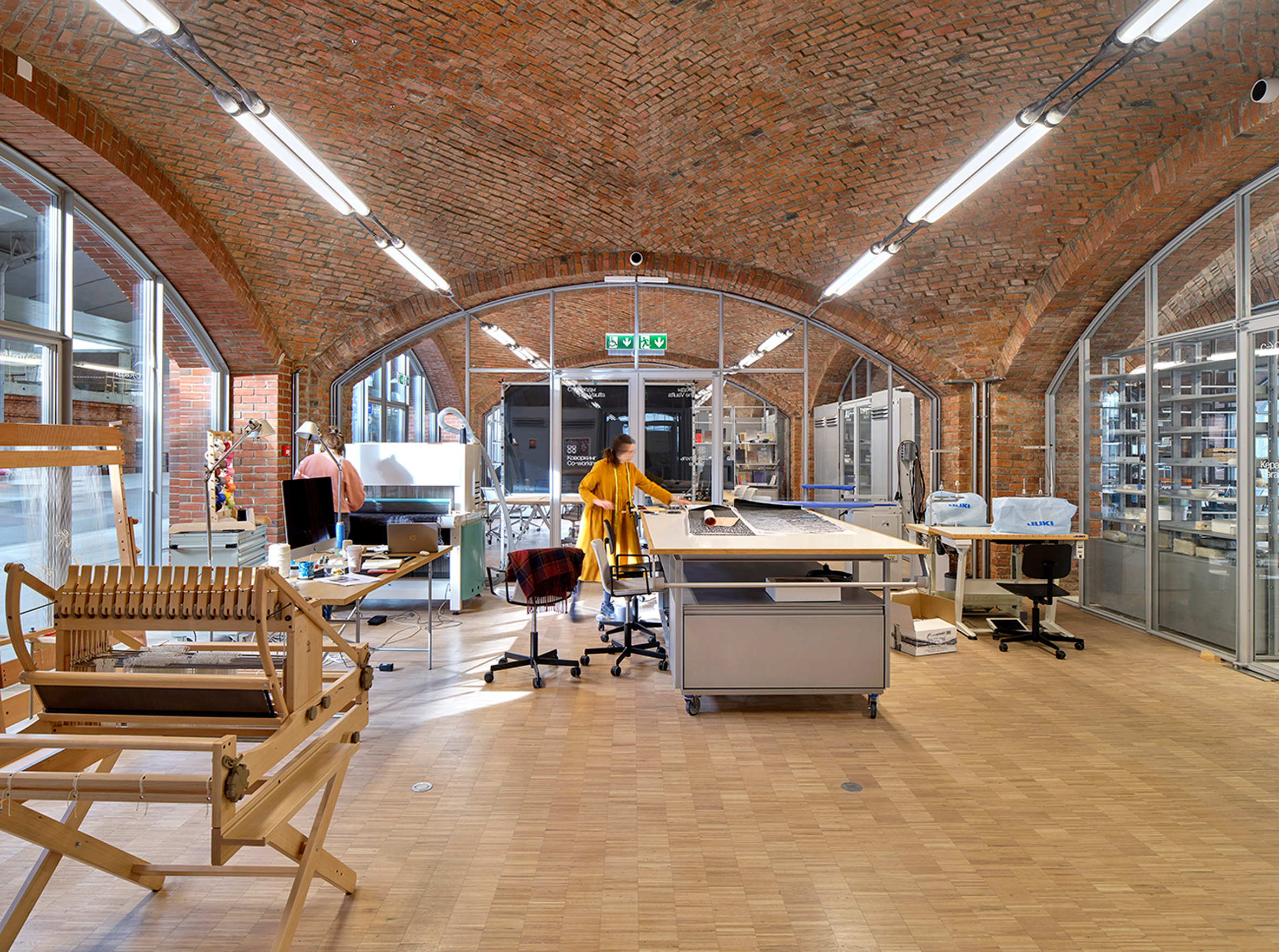
GES-2 opened to the public on 4 December 2021, and its forthcoming programme includes a series of exhibitions dedicated to the transformation of Russian culture over the past three decades.
Other projects recently completed by Renzo Piano Building Workshop include the Academy Museum of Motion Pictures in Los Angeles, and the Genoa San Giorgio Bridge in Italy.
The photography is by Michel Denancé.
The post Renzo Piano converts Moscow power station into GES-2 House of Culture appeared first on Dezeen.
from Dezeen https://ift.tt/3Jfh1B0
No comments:
Post a Comment